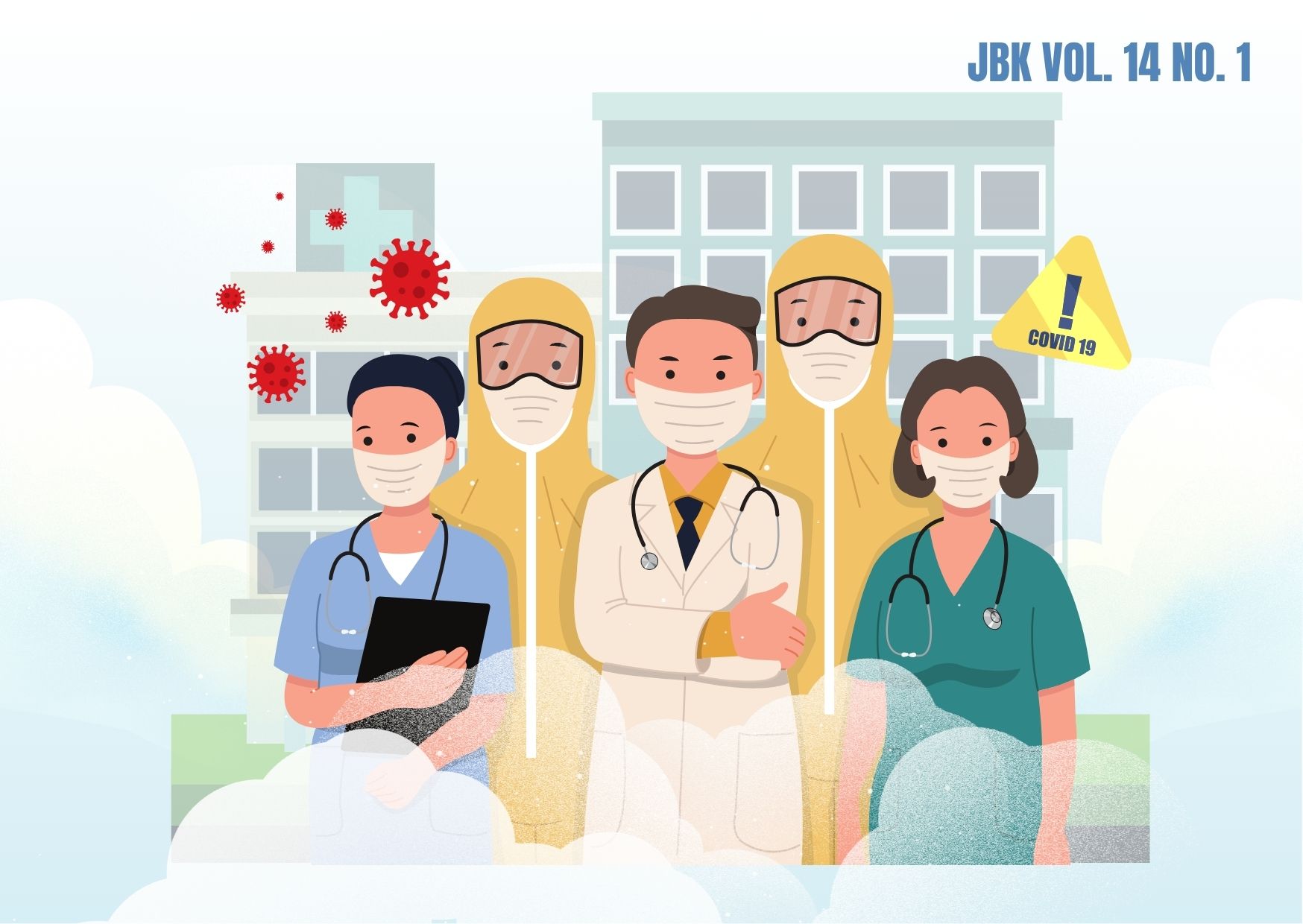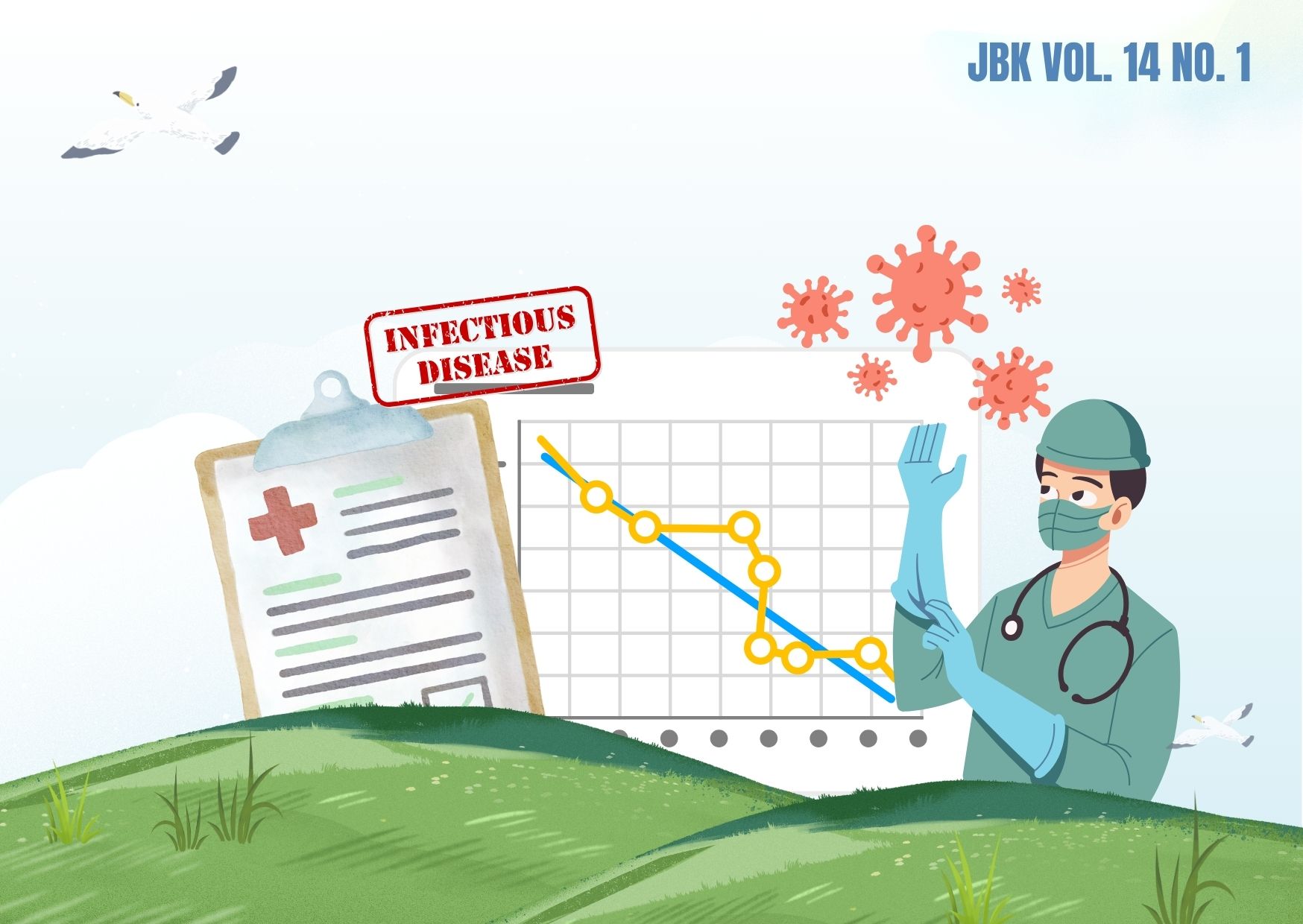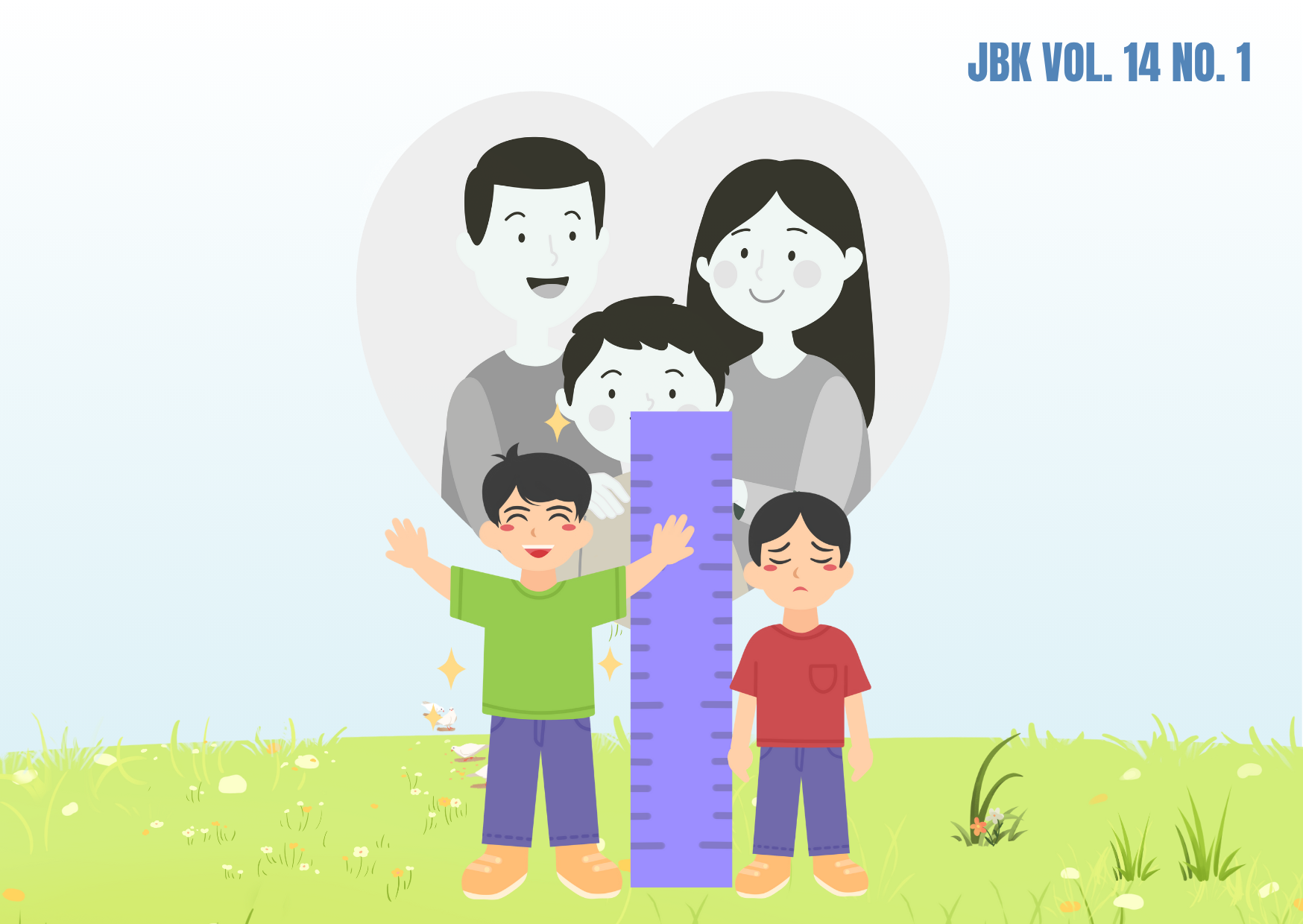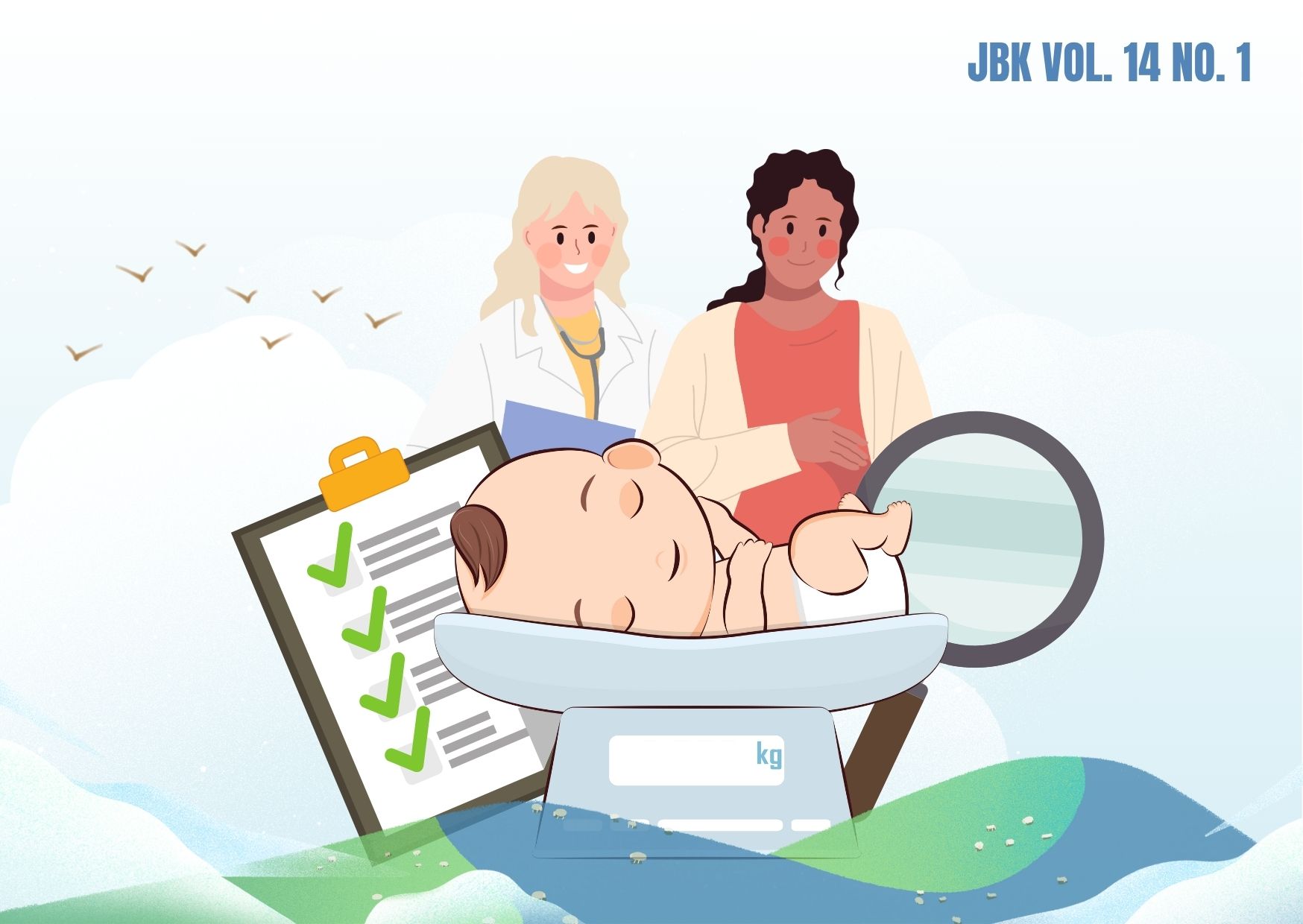HIV KNOWLEDGE AND SEXUAL RELATIONSHIP NEGOTIATION AMONG INDONESIAN WOMEN LIVING IN AREAS WITH HIGH VS LOW HIV PREVALENCE
Downloads
The prevalence of HIV in Indonesia is increasing, particularly among certain regions and married women. Such disparities have a significant impact on regional development. Knowledge of HIV and the ability to negotiate sexual relationships with their spouses can help prevent the spread of HIV in the population. This study aims to compare the HIV knowledge, stigma, sexual relationship negotiation, and attitudes toward negotiating safer sexual relationships of Indonesian married women in high and low HIV prevalence areas (Papua and West Sulawesi). Percentages, t-tests, and logistic regression were conducted using the 2017 Indonesian Demographic and Health Survey (IDHS) to analyze the differences between the two regions. The study found that HIV knowledge and negotiating skills differed between the two regions. Married women in the region with the highest HIV prevalence had better HIV knowledge but lower ability to negotiate sexual relationships with their husbands compared to married women living in the lowest HIV prevalence. The differences in HIV knowledge and ability to negotiate sexual relationships may be linked to gender disparities as well as efforts to prevent HIV transmission in the regions. Further studies are needed to explore the experiences and perspectives of married women in negotiating sexual relationships to develop more effective strategies to prevent HIV transmission in this population group.
Riono P, Challacombe SJ. HIV in Indonesia and in Neighbouring Countries and Its Social Impact. Oral Dis [Internet]. 2020;26(S1):28–33. Available from: https://doi.org/10.1111/odi.13560
Gedela K, Wirawan DN, Wignall FS, Luis H, Merati TP, Sukmaningrum E, et al. Getting Indonesia’s HIV Epidemic to Zero? One Size Does Not Fit All. Int J STD AIDS [Internet]. 2021;32(3):290–9. Available from: https://doi.org/10.1177/0956462420966838
Ministry of Health Indonesia. Executive Report on the Development of HIV AIDS and Sexually Transmitted Infections (STIs) Quarter II 2022 [Internet]. Ministry of Health Indonesia. Jakarta; 2022. Available from: https://siha.kemkes.go.id/
Arifin H, Ibrahim K, Rahayuwati L, Herliani YK, Kurniawati Y, Pradipta RO, et al. HIV-related Knowledge, Information, and Their Contribution to Stigmatization Attitudes Among Females Aged 15–24 Years: Regional Disparities in Indonesia. BMC Public Health [Internet]. 2022;22(1):1–11. Available from: https://doi.org/10.1186/s12889-022-13046-7
Ministry of Health Indonesia. HIV AIDS & Sexually Transmitted Diseases (STIs) Development Report for the First Quarter of 2021 [Internet]. Jakarta; 2021. Available from: https://siha.kemkes.go.id/portal/files_upload/Laporan_TW_I_2021_FINAL.pdf
UNAIDS. Women and HIV - a Spotlight on Adolescent Girls and Young Women [Internet]. Geneva; 2019. Available from: https://www.unaids.org/sites/default/files/media_asset/2019_women-and-hiv_en.pdf
Yitayew YA, Bekele DM, Wondimeneh B, Demissie, Menji ZA. Mother to Child Transmission of HIV and Associated Factors Among HIV Exposed Infants at Public Health Facilities, Dessie Town, Ethiopia. HIV/AIDS - Res Palliat Care [Internet]. 2019;1(1):343–50. Available from: https://doi.org/10.2147/HIV.S221409
National Population and Family Planning Board (BKKBN), (BPS) SI, Health M of, (Kemenkes), ICF. Indonesia Demographic and Health Survey 2017 [Internet]. BKKBN, BPS, Kemenkes, and ICF. Jakarta: BKKBN, BPS, Kemenkes, and ICF; 2018. Available from: https://www.dhsprogram.com/pubs/pdf/FR342/FR342.pdf
Suantari D. Misconceptions and Stigma Against People Living With HIV/AIDS: a Cross-sectional Study From the 2017 Indonesia Demographic and Health Survey. Epidemiol Health [Internet]. 2021;43:1–7. Available from: https://doi.org/10.4178/epih.e2021094
Fauk NK, Ward PR, Hawke K, Mwanri L. Cultural and Religious Determinants of HIV Transmission: a Qualitative Study With People Living With HIV in Belu and Yogyakarta, Indonesia. PLoS One [Internet]. 2021;16(11 November):1–18. Available from: https://doi.org/10.1371/journal.pone.0257906
Rahmalia A, Wisaksana R, Meijerink H, Indrati AR, Alisjahbana B, Roeleveld N, et al. Women With HIV in Indonesia: Are They Bridging a Concentrated Epidemic to the Wider Community? BMC Res Notes [Internet]. 2015;8(1):1–8. Available from: https://doi.org/10.1186/s13104-015-1748-x
Putra IGNE, Dendup T, Januraga PP. The Roles of Women Empowerment on Attitude for Safer Sex Negotiation Among Indonesian Married Women. Women Heal [Internet]. 2021;61(1):95–108. Available from: https://doi.org/10.1080/03630242.2020.1831685
Feyisetan B, Oyediran KA. Can Married or Cohabiting Women Negotiate Protective Sex? Findings From Demographic and Health Surveys of Two West African Countries. J Biosoc Sci [Internet]. 2019; Available from: https://doi.org/10.1017/S0021932019000798
Croft, Trevor N, Aileen M, Mrshall J, Courtney K, Allen K. Guide to DHS Statistics (DHS-7). Guid to DHS Stat [Internet]. 2018;1–90. Available from: https://preview.dhsprogram.com/pubs/pdf/DHSG1/Guide_to_DHS_Statistics_DHS-7.pdf
National Population and Family Planning Board (BKKBN), Central Bureau of Statistics of Indonesia, Ministry of Health Indonesia, USAID. Demographic and Health Survey 2017 [Internet]. Central Bureau of Statistics. Jakarta; 2017. Available from: https://www.bps.go.id/id/statistics-table/1/MjExMSMx/laporan-survei-demografi-dan-kesehatan-indonesia.html
Central Bureau of Statistics of Indonesia. Further Study of Gender Inequality Index [Internet]. Jakarta; 2017. Available from: https://www.bps.go.id/id/publication/2018/11/07/3409c01c7f0fd984685feede/kajian-lanjutan-indeks-ketimpangan-gender-2017.html
Efendi F, Pratama ER, Hadisuyatmana S, Indarwati R, Lindayani L, Bushy A. HIV-related Knowledge Level Among Indonesian Women Between 15 Years and 49 Years of Age. Afr Health Sci [Internet]. 2020;20(1):83–90. Available from: https://doi.org/10.4314/ahs.v20i1.13
Arifin B, Rokhman MR, Zulkarnain Z, Perwitasari DA, Mangau M, Rauf S, et al. The Knowledge Mapping of HIV/AIDS in Indonesians Living on Six Major Islands Using the Indonesian Version of the HIV-KQ-18 Instrument. PLoS One [Internet]. 2023;18(11):e0293876. Available from: https://doi.org/10.1371/journal.pone.0293876
Copyright (c) 2024 Jurnal Biometrika dan Kependudukan (Journal of Biometrics and Population)

This work is licensed under a Creative Commons Attribution-NonCommercial-ShareAlike 4.0 International License.
Copyright©2022 Jurnal Biometrika dan Kependudukan (Journal of Biometrics and Population)
This work is licensed under a Creative Commons Attribution-NonCommercial-ShareAlike 4.0 International License.
1. Copyright of all journal manuscripts is held by the Jurnal Biometrika dan Kependudukan.
2. Formal legal provisions to access digital articles of the electronic journals are subject to the provision of the Creative Commons Attribution-ShareAlike license (CC BY-NC-SA), which means that Jurnal Kesehatan Biometrika dan Kependudukan to keep, transfer media/format, manage in the form of databases, maintain, and publish articles.
3. Published manuscripts both printed and electronic are open access for educational, research, and library purposes. Additionally, the editorial board is not responsible for any violations of copyright law.



































